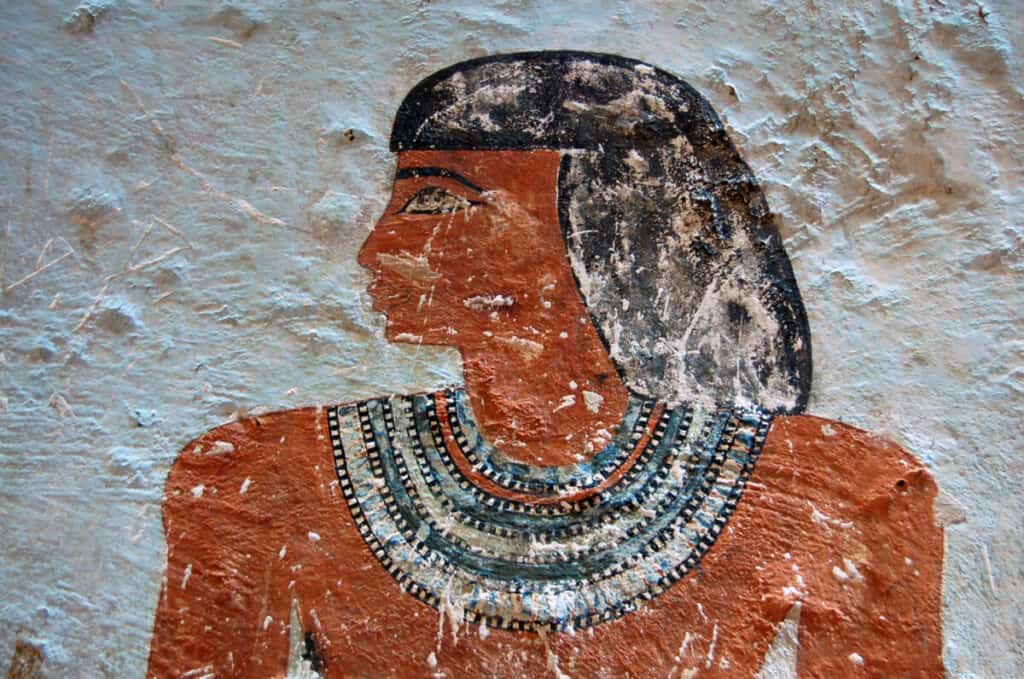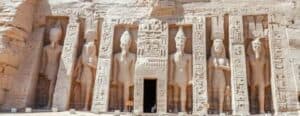The Bible has many unique aspects that separate it from every other book in the world. One of those aspects is that one can read the same passages hundreds of times and discover unseen truths each time.
Case in point, the art of Biblical dream interpretation. In this post, I’ll show you how the ability to interpret your dreams has been in in front of you the entire time you’ve been reading scripture. I’ll demonstrate this in the account of Joseph’s life, the Christmas story, and the parables Jesus taught.
First, what exactly do I mean by Biblical dream interpretation?
Biblical dream interpretation is the process by which dreams are understood by applying principles outlined in the Bible. These principles are collected from across the expanse of scripture, brought together to form the Biblical dream interpretation model. This model is unique among other models used to understand dreams because it begins with the following premise: God communicates with humans through dreams.

Why Would God Want Us to Understand Our Dreams?
Long before I understood anything about dreams I asked all the same questions everyone else does. What are dreams about? Does what I dream mean anything? Where do my come from anyway? All the while I was reading Genesis 39-45, the account of Joseph the dreamer. I can count no less then fifty times that I’ve heard the account of Joseph’s life as the subject of Sunday morning sermons.
No pastor that I heard ever mentioned the fact that Joseph had been given the gift of dream interpretation. To be fair, I’d never given this topic a second thought and never asked about it. Yet, there it was staring right at me as I read through the account of Joseph’s life. This hero of the Old Testament was able to save the entire nation of Israel from starvation because he was a dream interpreter. Not only that, he interpreted a dream for pharaoh when no one else could, (Genesis 41:3). His gifting was much more superior than the professional dream interpreters in Pharoah’s court.
Why would God want us to understand our dreams? In the case of Joseph interpreting Pharoah’s dream, to ensure that His chosen people made it out of the book of Genesis.

How Did Joseph Do This?
Okay. So Joseph had this affinity to dream, see his dreams come to pass and interpret dreams. But how did he do it? Does Genesis give us any keys to Biblical Interpretation? It’s right there in chapter 41.
“Pharaoh said to Joseph, ‘I had a dream and no one can interpret it. But I have heard it said of you that when you hear a dream you can interpret it.’
“I cannot do it.” Joseph replied to Pharaoh. “but God will give pharaoh the answer what he desires.” Genesis 41:15-16.
“It is just as I said to Pharaoh: God has shown Pharaoh what he is about to do.” Genesis 41:28.
These two verses reveal the interpretation of the dreams didn’t originate with Joseph but with God. Joseph received a revelation of the dream’s interpretation and he spoke it out. He made it clear that he wasn’t wiser than the the wise men in Pharaoh’s court. Just that he had a connection to the Dreamgiver.
In order to correctly interpret a dream, a person must have a connection to the One who understands all dreams.

The Christmas Story
In Matthew’s account of the birth of Jesus the word dream is used no less then five times. Joseph was told not to divorce Mary by an angel that appeared to him in a dream. The Magi were warned to return to their home another way in a dream. Joseph was told to take Jesus and Mary to Egypt in a dream, then was told to return to the land of Israel by an angel in another dream after Herod died. Then, once they were in Israel, he heard Archelaus was reining in Judea in place of his father Herod. Joseph was again warned in a dream, so he returned his family to Galilee.
The fact that the Magi and Joseph paid attention to their dreams as a way for God to communicate with them saved the life of Jesus. Not only did they pay attention to their dreams they actually followed the direction the dream told them. Just think about that. It’s difficult for dreamers today to remember what they dream, let alone follow the warning the dream gave them.
People in the ancient world respected dreams. They didn’t think of them as random bits of nonsense. They honored dreams. Honoring dreams is a key you can implement today in order to get the most out of your dreams.
Honoring your dream simply means you treat dreams as a way the Almighty can communicate with you when He’s got your full attention. Then, once you’ve awakened treat your dream as if it contains treasure you have yet to discover.
The first step is to record your dream in a dream journal. Then, make it a point to think about your dream as the day goes on. Mull it over. Meditate on its main parts and consider what it might mean. I realize we’re all very busy and we’ve got obligations to fulfill throughout the working day, however, as you make room for your dream within your day, you’re making room for its meaning.
At the end of the day as you’re laying down for the night try turning off media and pondering your dream once again. Pray for deeper meaning. Ask for clarification. Engage with the dream and the Dreamgiver. As you ask, seek and knock, as you honor the gift of your dreams, it won’t take long before you’re encountering the treasure only dreams can provide.
In order to correctly interpret a dream, you must first be able to remember what you dream. This is done by recording your dream and meditating on it, considering the meaning. Honor your dreams. Honor the Dreamgiver.

Parables of the Night
Dreams are much like the parables Jesus taught. On their surface they’re both accounts of an event or series of events that employ the se of metaphor to convey a much deeper truth than what’s readily seen.
One of the most famous parables can be found at the end of the sixth chapter of Luke. “Why do you call me ‘Lord, Lord’ and not do what I say? I will show you what he is like who comes to me and hears my words and puts them into practice. He is like a man building a house, who dug down deep and laid the foundation on rock. When a flood came, the torrent struck that house but could not shake it because it was well built. But the one who hears my words and does not put them into practice is like a man who built a house on the ground without a foundation. The moment the torrent struck that house, it collapsed and its destruction was complete.”
Bear with me a moment as I state the obvious. Every building constructed must be built on a foundation of stone (modern day concrete) if it is to last any amount of time,. That said, Jesus is not giving us a plan to construct a house. He’s comparing two opposites. A house with a good foundation and a house with an unstable foundation. His purpose in doing this is to make the point that your life will be secure if you build it upon His teaching. Don’t just listen to the words he says, do them.
Dreams often utilize this same technique.
In my dream I was walking somewhere and saw a friend walking toward me. As she passed I kissed her. We had a long deep kiss. She was a good kisser. Then I saw this girl I liked and I kissed her. Remarkably, this kiss wasn’t memorable at all. She wasn’t a good kisser and her lips were chapped. End of Dream.
This is a dream of opposites. The dreamer was shocked that the kiss he had with a friend was better and more memorable then with the girl he liked. The dream presented a situation that was opposite of what he thought it would be if it were to happen in waking life.
These two opposites are utilized in this dream to make the point that as the dreamer gets close to both the friend and the girl he liked. They exchange something that has to do with words (words originate from the mouth and the kiss indicates an exchange) and it won’t turn out the way they thought it would.
The dream may look radically different than any parable Jesus taught, but the principle is the same. Two opposites are being compared to bring to light a truth. Lots of other hints are hidden within parables if you’ve got eyes to see them. A parable’s clean and honest presentation, for example, suggests simplicity, and simplicity when applied to any dream, draws out the meaning.
I encourage you to refer to the dreams you’ve had. Do you notice any of them have been structured similar to one of the parables? Take note of the similarities as you ask, seek, and knock to pursue meaning within your dreams.

Scriptural Keys to Biblical Dream Interpretation
When one looks to the Bible to get answers to dreams, you begin to see deeper connections than just strangeness. The strangeness has a purpose of inviting the dreamer to take notice of what’s going on. However, when the dreamer takes the time to go deeper within the dream and explore what’s going on, deeper connections can be found, and those connections can actually help in bringing clarity to the meaning of dreams.
An example of this are the many scriptural references to simplicity.
Simplicity to Confound the Wise
Simplicity is one of the fundamental principles of dream interpretation. That principle stats that if you reduce your dream down to the simplest form you’ll be able to extract basic meaning out of it. The same goes for the symbols that appear within your dream. If you describe any symbol you’ve seen within your dream in a simple and most basic way, you’ll reveal the core of its meaning.
Some dreams can be understood because they’re describing situations that have already been answered in the Bible. I’ve seen the parable of the Prodigal’s Son as a dream. It looked a bit different the parable, but the message was essentially the same.
If you can understand the meaning of Biblical symbolism you’re well on your way to understand dream symbolism. Through scripture we understand the Holy Spirit is represented by water, specifically rivers of living water.
- We also understand a dove represents the Holy Spirit because of its appearance at the baptism of Jesus.
- We understand from Acts 2 that the Holy Spirit came to the upper room like a mighty rushing wind.
- Through scripture we understand the Holy Spirit is represented by water, specifically rivers of living water.
When you see any of these symbols water, wind, doves in dreams start with the meaning of the Holy Spirit first and go from there. If it doesn’t make sense its okay to move on to the next meaning. For example, if you’re being taken for a canoe ride down a muddy river where dark shadows fall on the water and you feel fear every time you pass one of those watery shadows, the water most likely doesn’t represent the Holy Spirit. It’s not at all consistent with His personality.
There are tons of other examples throughout scripture, like horses which represent power, crops in fields which represent souls and harvest, mountains representing a high place to meet with God. I encourage you to search the scriptures and find other metaphorical symbols and take note of how they are used and the meaning assigned to them. Remember to apply the principle of simplicity.
CJ

